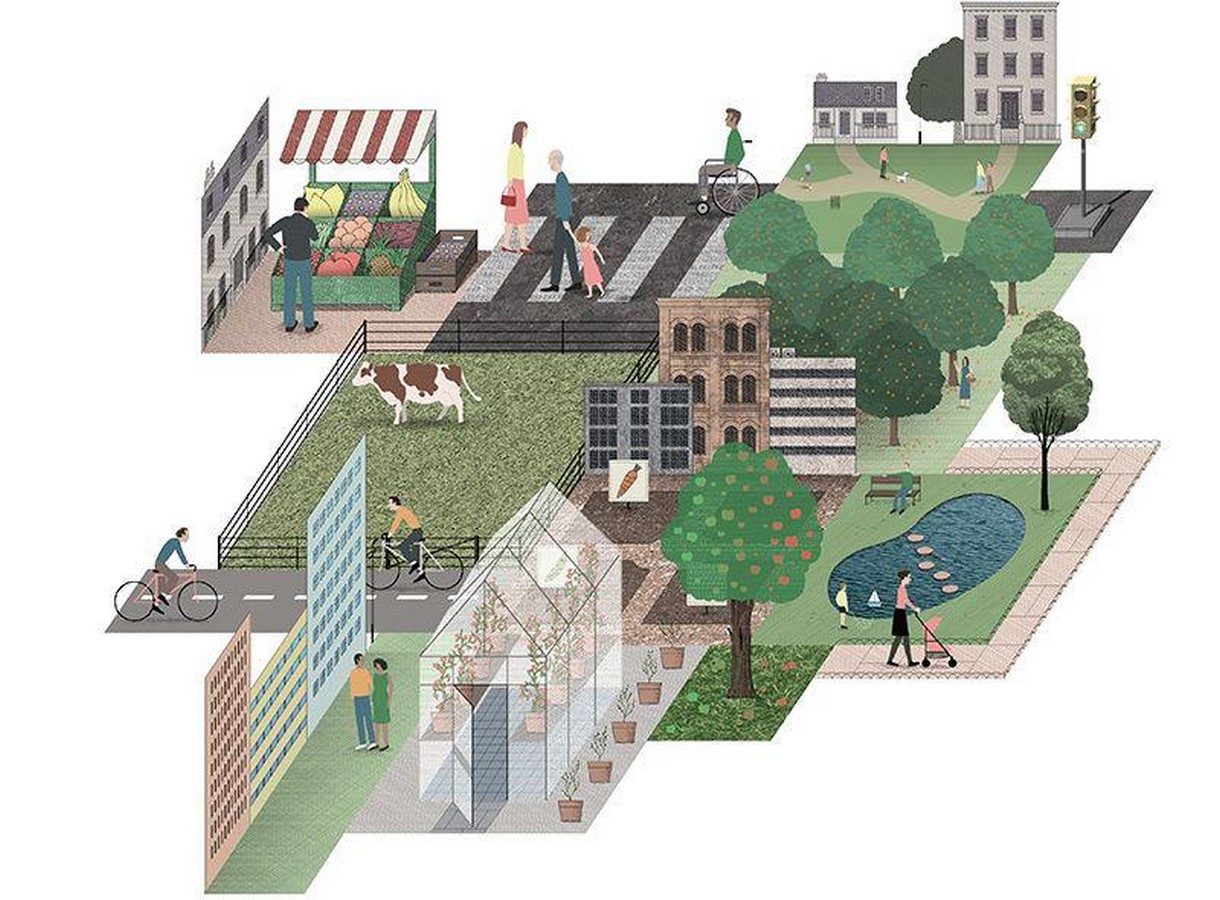The Evolving Landscape of Home Decor Shops in the UK: A Comprehensive Guide
Related Articles: The Evolving Landscape of Home Decor Shops in the UK: A Comprehensive Guide
Introduction
With great pleasure, we will explore the intriguing topic related to The Evolving Landscape of Home Decor Shops in the UK: A Comprehensive Guide. Let’s weave interesting information and offer fresh perspectives to the readers.
Table of Content
The Evolving Landscape of Home Decor Shops in the UK: A Comprehensive Guide

The UK home decor market is a vibrant and dynamic sector, offering a vast array of options for homeowners seeking to enhance their living spaces. From independent boutiques to large retail chains, the landscape is diverse, catering to a wide range of tastes and budgets. This comprehensive guide explores the key aspects of home decor shops in the UK, delving into their evolution, the diverse offerings, and the factors shaping the industry.
A Historical Perspective
Home decor shops in the UK have a rich history, evolving alongside changing tastes and societal trends. In the past, furniture and furnishings were often passed down through generations, with limited access to new and diverse styles. The emergence of mass production in the 20th century brought about a significant shift, making home decor more accessible and affordable. Department stores became central hubs for home furnishings, offering a wide selection of products under one roof.
However, the rise of specialized home decor shops began to gain traction in the latter half of the 20th century, catering to niche tastes and providing a curated experience. These shops often focused on specific styles, such as vintage, contemporary, or minimalist, offering expert advice and a personalized approach.
The Modern Landscape: Diversification and Innovation
The 21st century has witnessed a surge in online shopping, significantly impacting the home decor industry. Online platforms have expanded access to a global market, offering a vast selection of products and styles, often at competitive prices. This has led to increased competition for traditional brick-and-mortar stores, prompting them to adapt and innovate.
Today, home decor shops in the UK showcase a remarkable diversity, catering to a spectrum of needs and preferences.
-
Large Retail Chains: These chains, such as John Lewis, IKEA, and Dunelm, offer a broad range of products at competitive prices, attracting a wide customer base. They often prioritize accessibility and affordability, providing a comprehensive selection of furniture, lighting, textiles, and decorative accessories.
-
Independent Boutiques: These smaller shops often specialize in unique and curated collections, offering a more personalized experience. They may focus on specific styles, such as vintage, Scandinavian, or bohemian, or showcase the work of local artisans and designers. They often prioritize quality and craftsmanship, offering a curated selection of distinctive pieces.
-
Online Retailers: Online platforms, such as Etsy, Not on the High Street, and Made.com, have revolutionized the home decor market, offering a vast selection of products from independent designers and small businesses around the world. They provide convenience and accessibility, allowing customers to browse and purchase from the comfort of their homes.
-
Pop-Up Shops: These temporary stores offer a unique and ephemeral shopping experience, often showcasing emerging designers and trends. They provide a platform for experimentation and creativity, offering a diverse range of products and styles.
Factors Shaping the Industry
The home decor industry is constantly evolving, influenced by a multitude of factors:
-
Changing Consumer Preferences: Consumer tastes are constantly shifting, driven by social media trends, cultural influences, and personal aspirations. This dynamic landscape requires home decor shops to stay ahead of the curve, offering products that resonate with current trends and preferences.
-
Technological Advancements: Technology plays a crucial role in the home decor industry, influencing everything from product design and manufacturing to marketing and customer engagement. Online platforms, augmented reality, and personalized recommendations are transforming the shopping experience, creating a more interactive and engaging environment.
-
Sustainability and Ethical Sourcing: Consumers are increasingly conscious of environmental and social issues, demanding products that are ethically sourced and produced sustainably. Home decor shops are responding by offering eco-friendly materials, recycled products, and fair-trade options, reflecting a growing awareness of the industry’s impact.
-
The Rise of Minimalism and Functionality: A shift towards minimalist aesthetics and functional design is evident in the home decor market. Consumers are seeking pieces that are both stylish and practical, prioritizing quality over quantity. This trend is driving a demand for durable and versatile furniture and accessories that can adapt to changing needs and lifestyles.
Benefits of Home Decor Shops
Beyond the aesthetic appeal, home decor shops offer a range of benefits:
-
Inspiration and Ideas: Home decor shops serve as a source of inspiration, showcasing the latest trends and providing ideas for transforming living spaces. They offer a platform for exploring different styles, discovering new designers, and finding unique pieces that reflect individual tastes.
-
Expert Advice and Guidance: Many home decor shops offer expert advice and guidance, assisting customers in selecting the right furniture, accessories, and colors to create a cohesive and harmonious living environment. They can provide insights into specific styles, color palettes, and design principles, helping customers create a space that reflects their personal vision.
-
Supporting Local Businesses: Shopping at independent boutiques and local artisans helps support local businesses and contributes to the economic vitality of communities. It fosters a sense of community and encourages the preservation of craftsmanship and traditional skills.
-
Creating a Unique and Personal Space: Home decor shops offer a platform for expressing individuality and creating a space that reflects personal style and preferences. They provide the opportunity to curate a unique and personalized living environment that reflects individual taste and personality.
FAQs
Q: What are some popular home decor styles in the UK?
A: The UK home decor scene embraces a diverse range of styles, including:
- Scandinavian: Minimalist and functional, characterized by clean lines, natural materials, and a focus on light and space.
- Industrial: Raw and edgy, featuring exposed brick, metal accents, and reclaimed furniture.
- Vintage: Retro and nostalgic, incorporating antique pieces, vintage textiles, and mid-century modern furniture.
- Bohemian: Eclectic and free-spirited, characterized by a mix of textures, patterns, and global influences.
- Contemporary: Modern and sophisticated, featuring sleek lines, bold colors, and innovative materials.
Q: How can I find a home decor shop that suits my style and budget?
A:
- Online Research: Explore online platforms like Houzz, Pinterest, and Instagram to discover shops and styles that resonate with your preferences.
- Local Exploration: Visit local shopping districts, browse independent boutiques, and explore antique shops for unique finds.
- Word-of-Mouth Recommendations: Seek recommendations from friends, family, or colleagues who share similar tastes and budgets.
Q: What are some tips for decorating my home?
A:
- Define your style: Identify the overall aesthetic you want to achieve, whether it’s minimalist, traditional, or eclectic.
- Create a cohesive color palette: Choose a color scheme that complements your style and furniture.
- Mix and match textures: Incorporate different textures, such as wood, metal, and textiles, to add depth and visual interest.
- Add personal touches: Incorporate meaningful objects, artwork, and family heirlooms to create a space that reflects your personality.
- Don’t be afraid to experiment: Try out different arrangements, accessories, and lighting to find what works best for your space.
Conclusion
Home decor shops in the UK play a vital role in shaping the aesthetic and functionality of living spaces. From large retail chains to independent boutiques, the industry offers a diverse range of options, catering to a wide spectrum of tastes and budgets. The evolving landscape, influenced by changing consumer preferences, technological advancements, and a growing focus on sustainability, ensures that the home decor industry remains dynamic and responsive to the needs of the modern homeowner. By embracing the creativity and inspiration offered by these shops, individuals can transform their living spaces into havens that reflect their personal style and aspirations.




/eyrc-kingsland-interior-space.jpg?width=1500u0026name=eyrc-kingsland-interior-space.jpg)



Closure
Thus, we hope this article has provided valuable insights into The Evolving Landscape of Home Decor Shops in the UK: A Comprehensive Guide. We hope you find this article informative and beneficial. See you in our next article!